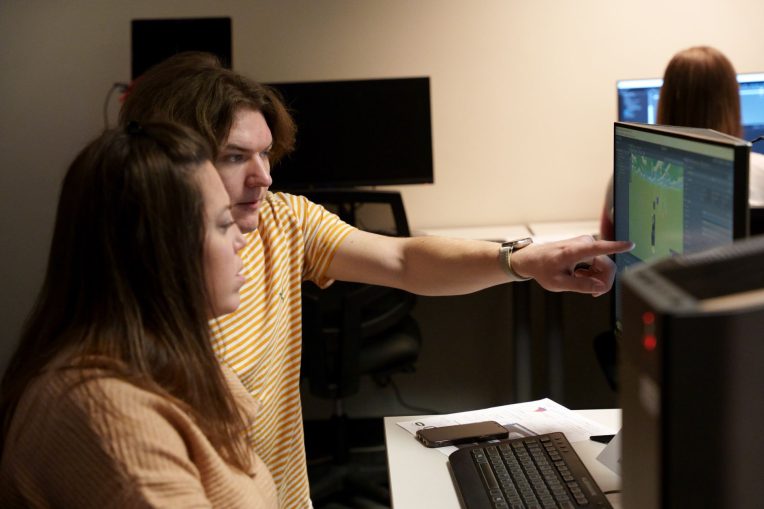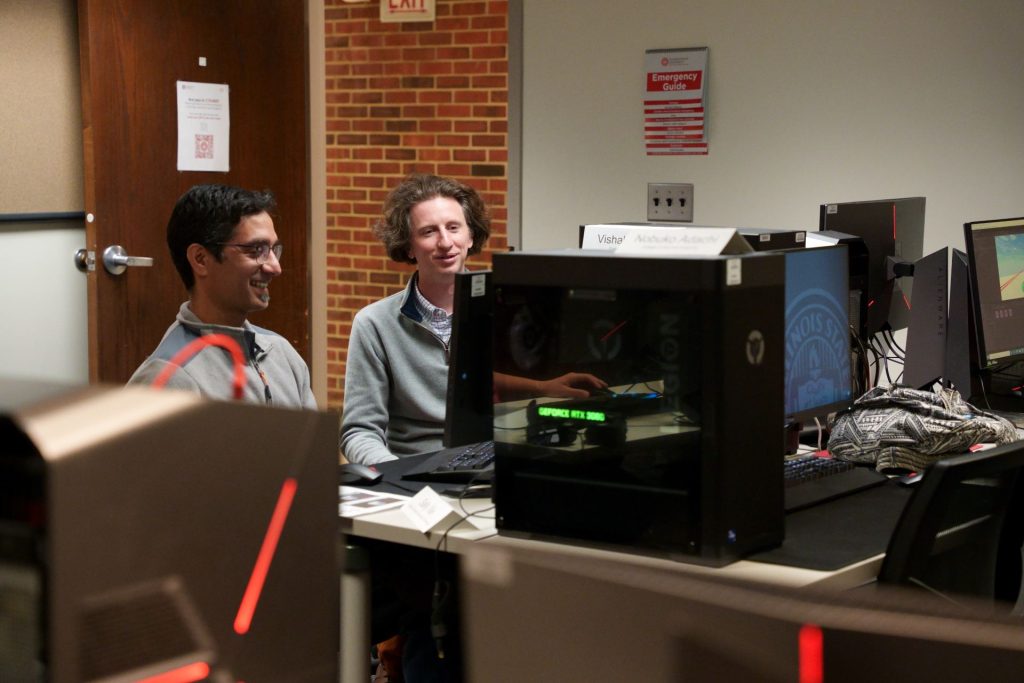As technology becomes increasingly essential to academic work, virtual reality (VR) and extended reality (XR) courses provide an opportunity for faculty and staff to create their own methods for course delivery and research application.
Faculty from all academic colleges and Milner Library attended this year’s six-week Zero-to-Hero training boot camp pilot presented by the Offices of the Provost and Technology Solutions and taught by graduate assistants Miles Howley and Zétény Nagy.
Course goals included becoming familiar with current trends in consumer VR, learning the fundamentals of the Unity game engine, creating a custom VR application for the Quest 2 VR platform, and evaluating how VR technology can be used in research and pedagogy.
Nursing simulation specialist Urszula Szpila said learning to develop virtual reality environments gives Mennonite College of Nursing faculty the ability to teach students about caring for patients in environments they may not be able to access in-person, like COVID-19 treatment areas.
“They put on the headsets, and they jump into these hospital rooms that they might otherwise not be able to,” Szpila said.
Szpila said developing virtual reality simulations gives students the chance to be an observer and an executive decision-maker.
“They get to decide when to give the patient the medication,” Szpila said. “They get to decide what direction they would take within that virtual reality world that would mirror the kinds of decisions they would need to make in real-life situations.”
According to Szpila, virtual reality also allows the students to practice without the added stress of possibly harming the patient.
“It’s been really interesting to see what it takes behind the scenes in order to create something that I would see on a Nintendo console or something like that,” Szipla said.
Using the virtual reality program Unity Hub, faculty and staff learned to create their own digital games relating to their field of work. Szipla praised the class instructors for their knowledge and patience with faculty and staff.
“I’m really thankful for them because they’ve been really fun to work with, and I’ve been enjoying listening to their tutorials,” Szpila said.
A panel of class participants will speak about their experiences learning to use extended and virtual reality during the Teaching and Learning Symposium at 11 a.m. on Wednesday, January 11, via Zoom.
The presenting offices hope to make this boot camp available again in an upcoming semester.


